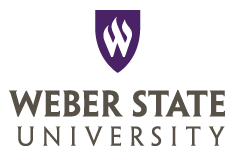PPM 3-9, Alternative Work Arrangements
 |
Responsible Office: |
1.0 PURPOSE
Alternative work arrangements can vary from flexible scheduling to partial or complete remote work. This may increase employee well-being and satisfaction, improve talent retention and recruitment, improve building utilization, and support University sustainability initiatives, and operational efficiencies.
2.0 REFERENCES
2.1 PPM 3-2, Employee Definitions
2.2 PPM 3-2a, Fair Labor Standards Act (FLSA)
2.3 PPM 10-1, Information Security Policy
2.4 PPM 10-2, Acceptable Use Policy
3.0 DEFINITION
3.1 Alternative Work Arrangement - A work arrangement that allows employees to work at a place other than a regularly assigned office location, such as the employee’s residence or an alternative location approved by the employee’s supervisor for all or part of their workweek. It may also allow employees to work a schedule that is considered flexible or compressed full-time.
4.0 ELIGIBILITY
4.1 Alternative work arrangement eligibility is determined by reviewing several factors, including the following:
4.1.1 Position Compatibility: Evaluation of the position responsibilities to determine if the position is appropriate for an alternative work arrangement.
4.1.2 Employee Suitability for Alternative Work: The employee’s needs, work habits, and performance are factors for consideration.
4.1.3 Worksite Suitability: Maintaining a safe alternate worksite is the remote worker’s responsibility. Employees may be required to complete verification documentation approved by Human Resources.
5.0 POLICY
5.1 Weber State University considers an alternative work arrangement to be a viable, flexible work option when both the employee and the position are suited to such an arrangement. An alternative work arrangement may be appropriate for some employees and positions but not for others. No employee is entitled or guaranteed the opportunity for an alternative work arrangement. An alternative work arrangement in no way changes the terms and conditions of employment with Weber State University.
5.2 If eligible, an employee may apply for an alternative work arrangement agreement through their supervisor, with additional guidance from Human Resources. The employee may be required to provide information to Human Resources and the supervisor regarding their application. If an employee disagrees with the decision made, they may seek an additional review by Human Resources.
5.3 All alternative work arrangement agreements are subject to review and approval by Human Resources.
5.4 All alternative work arrangement agreements shall comply with FLSA standards as outlined in PPM 3-2a for non-exempt employees.
5.5 All alternative work arrangement agreements shall comply with the PPM 10-1 and the PPM 10-2.
5.6 Employees must report if they have the intention to work out of state. Employees may work out of state or out of the country only by approval through the supervisor, Human Resources, and Payroll. Such arrangements, if existing, may not be able to be accommodated or continued. Employees are responsible for all tax implications and obligations for working in an alternative work location.
5.7 Employees are responsible for complying with all local, state, and federal laws regarding working in an alternative work location.
6.0 PROCEDURE
6.1 Human Resources may create alternative work arrangement procedures and forms to facilitate this policy. Employees and supervisors shall follow the procedures and application process for an alternative work arrangement.
6.2 Human Resources will provide an update regarding the functioning and usage of this program in their annual report to University leadership.
Revision History
Creation Date: 3-22-22
